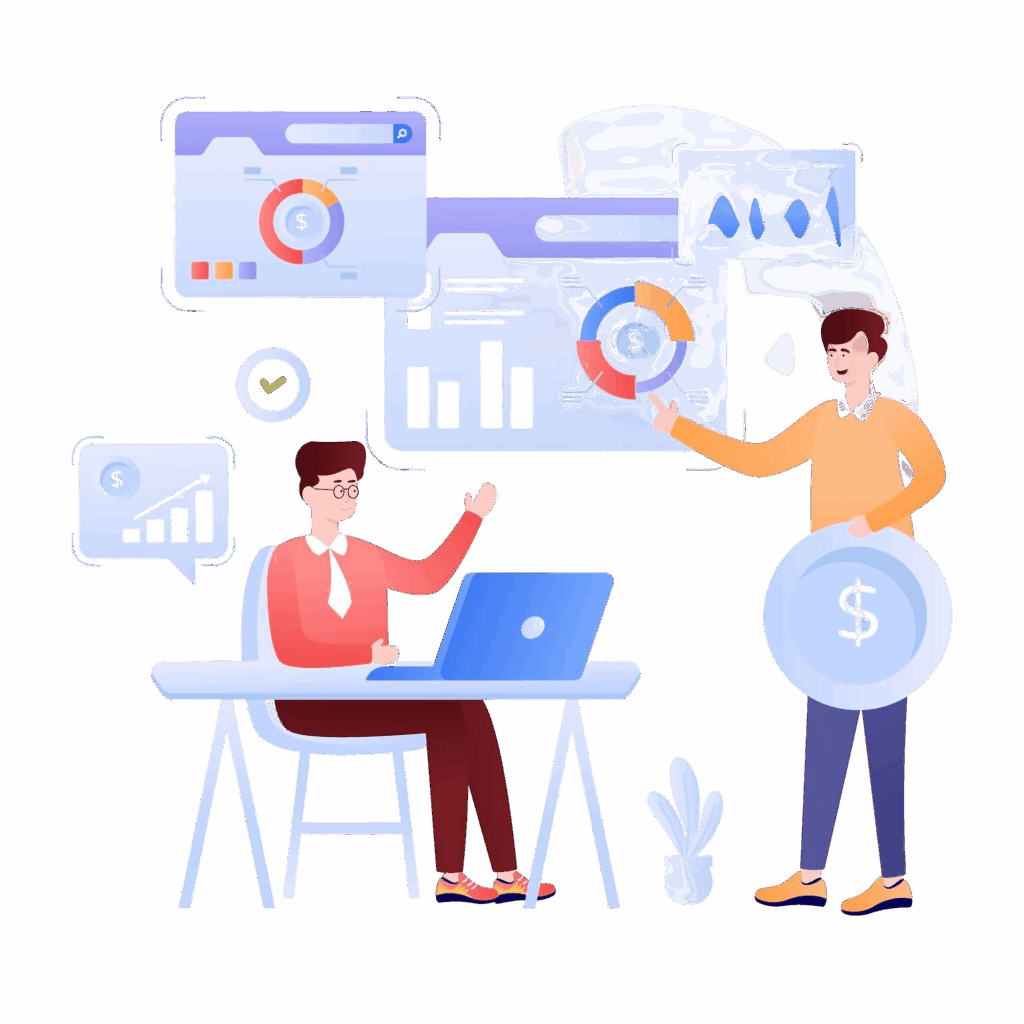The B2B travel agency market has undergone a fundamental transformation in recent years. With 73% of business travelers now researching travel options online before contacting agencies, and the global B2B travel market projected to reach $1.4 trillion by 2027, traditional marketing approaches are no longer sufficient for sustainable growth.
Modern OTA marketing strategies must address the unique challenges of longer sales cycles, committee-based decision making, and the need for ROI-focused messaging. Unlike B2C travel marketing that focuses on emotional appeal and destination inspiration, B2B travel agency marketing tactics require a strategic approach emphasizing efficiency, cost savings, and business value.
Industry Reality: B2B travel agencies implementing comprehensive digital marketing strategies report 4.2x higher lead quality and 67% faster sales cycle completion compared to those relying solely on traditional networking and referrals.
Understanding the B2B Travel Marketing Landscape
The landscape of how to market travel agencies to businesses has shifted dramatically. Corporate travel managers now prioritize technology integration, real-time reporting, and measurable cost savings over traditional relationship-based selling.
Key B2B Travel Market Segments
Corporate Travel Managers (CTMs)
- Primary Concerns: Policy compliance, duty of care, cost control
- Decision Criteria: Technology integration, reporting capabilities, service level agreements
- Marketing Channels: LinkedIn, industry publications, webinars, trade shows
- Content Preferences: ROI case studies, compliance frameworks, technology demonstrations
Travel Management Companies (TMCs)
- Primary Concerns: Inventory access, commission structures, technology support
- Decision Criteria: Content variety, booking engine capabilities, supplier relationships
- Marketing Channels: Direct sales, industry events, partner referrals
- Content Preferences: Supplier portfolios, technology specifications, partnership benefits
Online Travel Agencies (OTAs)
- Primary Concerns: Market differentiation, technology scalability, supplier connectivity
- Decision Criteria: API performance, inventory breadth, competitive pricing
- Marketing Channels: Digital advertising, content marketing, industry networking
- Content Preferences: Technical documentation, market analysis, competitive comparisons
The Evolution of Business Travel Decision Making
| Decision Factor |
Priority Level (2025) |
Change from 2020 |
| Technology Integration |
94% |
+28% |
| Real-time Reporting |
89% |
+35% |
| Cost Transparency |
92% |
+22% |
| API Connectivity |
76% |
+45% |
| Mobile Optimization |
88% |
+41% |
Digital Marketing Strategies for Travel Agencies
1. Account-Based Marketing (ABM) for High-Value Prospects
Account-Based Marketing represents the most effective approach for OTA digital marketing strategies, focusing resources on high-value prospects with personalized campaigns that significantly improve conversion rates.
ABM Implementation Framework
Phase 1: Target Account Identification
- Ideal Customer Profile (ICP): Define characteristics based on company size, industry, and technology stack
- Account Scoring: Revenue potential, strategic value, and win probability metrics
- Stakeholder Mapping: Identify decision makers, influencers, and technical evaluators
- Account Prioritization: Tier 1 (15-25 accounts), Tier 2 (50-100 accounts)
Phase 2: Personalized Content Development
- Account-Specific Research: Industry challenges, company initiatives, competitive landscape
- Custom Content Creation: Case studies, ROI calculators, competitive analyses
- Multi-Channel Campaigns: Email sequences, LinkedIn outreach, direct mail, webinars
- Executive Briefing Materials: Customized presentations for C-level stakeholders
Phase 3: Coordinated Execution
- Sales-Marketing Alignment: Shared goals, regular communication, joint planning
- Multi-Touch Campaigns: 15-25 touchpoints over 6-12 months
- Executive Engagement: CEO/VP involvement in key account meetings
- Performance Tracking: Account engagement metrics, pipeline progression
ABM Performance Impact: Organizations implementing ABM report 208% higher revenue impact compared to traditional marketing approaches, with 36% higher customer retention rates and 42% faster pipeline velocity.
2. Content Marketing and Thought Leadership
Establishing your B2B travel agency as a thought leader through strategic content marketing builds trust, demonstrates expertise, and attracts qualified prospects actively researching solutions.
High-Impact Content Categories
Educational Content Series
Content Types:
- API Integration Guides for developers implementing your Universal Hotel API
- Best Practice Frameworks for corporate travel management
- Technology Comparisons of different booking engine solutions
- Compliance Resources for meeting corporate travel policy requirements
Industry Research & Reports
Content Types:
- Market trend analysis and future predictions
- Industry benchmarking studies with actionable insights
- Supplier performance reports and evaluations
- Cost optimization research with ROI calculations
Customer Success Stories
Content Types:
- Client transformation stories with measurable outcomes
- ROI demonstrations with specific metrics
- Problem-solution narratives addressing common challenges
- Implementation timelines and best practices
| Content Type |
Engagement Rate |
Lead Generation Impact |
Sales Influence |
| Industry Research Reports |
34% |
High |
78% |
| Technology Whitepapers |
28% |
Very High |
82% |
| Customer Case Studies |
45% |
High |
89% |
| Webinar Series |
67% |
Very High |
71% |
3. LinkedIn Marketing and Professional Networking
LinkedIn serves as the primary platform for travel industry B2B lead generation, offering direct access to decision-makers and providing opportunities for relationship building at scale.
LinkedIn Strategy Implementation
Executive Personal Branding
- Profile Optimization: Industry keywords, expertise showcase, thought leadership positioning
- Content Publishing: Weekly industry commentary, trend predictions, and insights
- Active Engagement: Meaningful comments on prospect content, strategic sharing
- Network Building: Strategic connections with decision makers and influencers
Company Page Optimization
- Content Strategy: Customer success stories, behind-the-scenes content, industry insights
- Employee Advocacy: Team members amplifying company content and expertise
- LinkedIn Events: Webinars, industry participation, thought leadership sessions
- Showcase Pages: Dedicated pages for specific solutions like Zentrum Connect
LinkedIn Marketing Statistics: 97% of B2B marketers use LinkedIn for content distribution, generating 80% of B2B leads from social media with 9x higher engagement than other platforms.
Proven Lead Generation Techniques
1. Technology-Driven Lead Capture
Modern travel agency lead generation requires sophisticated technology infrastructure that captures, nurtures, and converts prospects efficiently throughout the extended B2B sales cycle.
Essential Lead Generation Tools
Advanced Booking Engine Integration
Your booking engine serves as more than a transaction platform—it’s a powerful lead generation and conversion tool:
- Progressive Profiling: Capture business requirements gradually without overwhelming prospects
- Custom Booking Flows: Tailored experiences for different business segments
- CRM Integration: Seamless lead management and sales team notification
- Demo Capabilities: Enable prospect evaluation with real inventory access
API Documentation and Developer Resources
Technical prospects evaluating your Universal Hotel API require comprehensive resources:
- Gated Documentation: Technical specifications requiring registration
- Interactive Testing: API sandbox environments for hands-on evaluation
- Code Examples: Implementation samples for common use cases
- Developer Webinars: Technical education series with lead capture
2. Webinar Marketing Programs
Webinars represent one of the highest-converting lead generation channels for B2B travel agency marketing tactics, offering education value while demonstrating expertise.
| Webinar Topic Category |
Average Attendance |
Lead Conversion |
SQL Rate |
| Technology Demonstrations |
68% |
23% |
34% |
| Industry Trend Analysis |
72% |
18% |
28% |
| Customer Success Stories |
65% |
31% |
42% |
| Implementation Best Practices |
71% |
26% |
38% |
Technology Solutions for Marketing Success
1. ZentrumHub Technology Advantage
ZentrumHub’s comprehensive technology platform provides the foundation for effective travel industry B2B lead generation through integrated solutions that demonstrate value while capturing prospect information.
Integrated Marketing Solutions
Zentrum Connect Integration
Our Zentrum Connect platform enables seamless integration between marketing and sales technologies:
- Real-time Lead Scoring: Based on technology evaluation activities and engagement patterns
- Automated Demo Provisioning: Instant access to testing environments for qualified prospects
- Custom Reporting Dashboards: API usage metrics and adoption analytics
- White-label Capabilities: Partner marketing programs with co-branded solutions
B2B Travel Portal Demonstrations
Our B2B Travel Portal serves as a powerful sales tool while generating qualified leads:
- Interactive Product Demos: Real inventory access showcasing pricing and availability
- Customizable Booking Flows: Demonstrating integration flexibility and customization options
- Performance Metrics: Speed and reliability advantages with live data
- Mobile Responsiveness: Cross-platform compatibility demonstration
2. Marketing Automation and CRM Integration
Successful OTA marketing strategies require sophisticated automation to manage long sales cycles and multiple stakeholder touchpoints effectively.
Marketing Automation Impact: Properly implemented automation delivers 451% increase in qualified leads, 34% average increase in sales-ready leads, and 77% reduction in cost per lead.
Measuring Marketing ROI and Performance
Key Performance Indicators for B2B Travel Marketing
Effective measurement of B2B travel agency marketing tactics requires tracking metrics that align with business objectives and provide actionable insights for optimization.
| Metric |
Definition |
Industry Benchmark |
Excellence Target |
| Cost Per Lead (CPL) |
Total marketing spend ÷ Total leads generated |
$125-$200 |
Under $100 |
| Lead-to-Customer Rate |
Customers acquired ÷ Total leads × 100 |
12-18% |
25%+ |
| Customer Acquisition Cost |
Total sales & marketing spend ÷ New customers |
$2,500-$4,000 |
Under $2,000 |
| Marketing Qualified Lead Rate |
MQLs ÷ Total leads × 100 |
25-35% |
40%+ |
Revenue Attribution Metrics
- Marketing-Sourced Revenue: $2.3M average annual impact for mid-market travel companies
- Pipeline Acceleration: 34% faster deal closure when marketing qualified
- Deal Size Impact: 28% larger average contract values from marketing-sourced leads
- Customer Lifetime Value: 43% higher LTV from inbound marketing channels
Future Trends in B2B Travel Marketing
1. Artificial Intelligence and Machine Learning
AI technologies are revolutionizing travel industry B2B lead generation through predictive analytics, personalization, and automation capabilities that dramatically improve marketing effectiveness.
AI-Powered Marketing Applications

